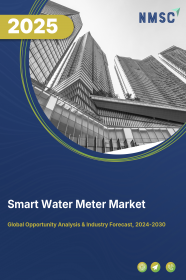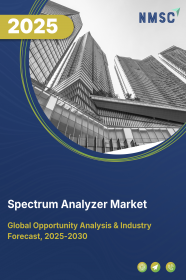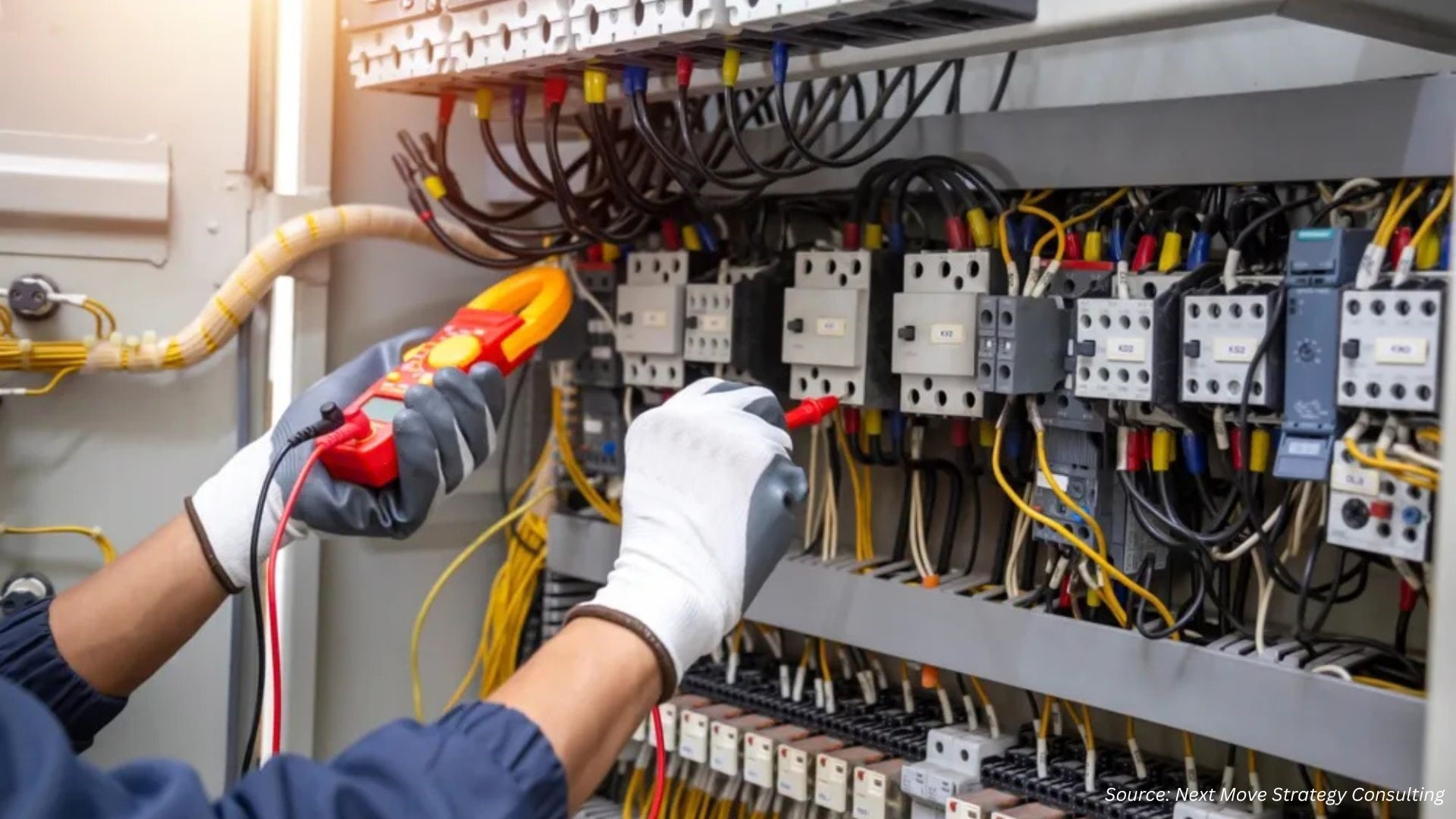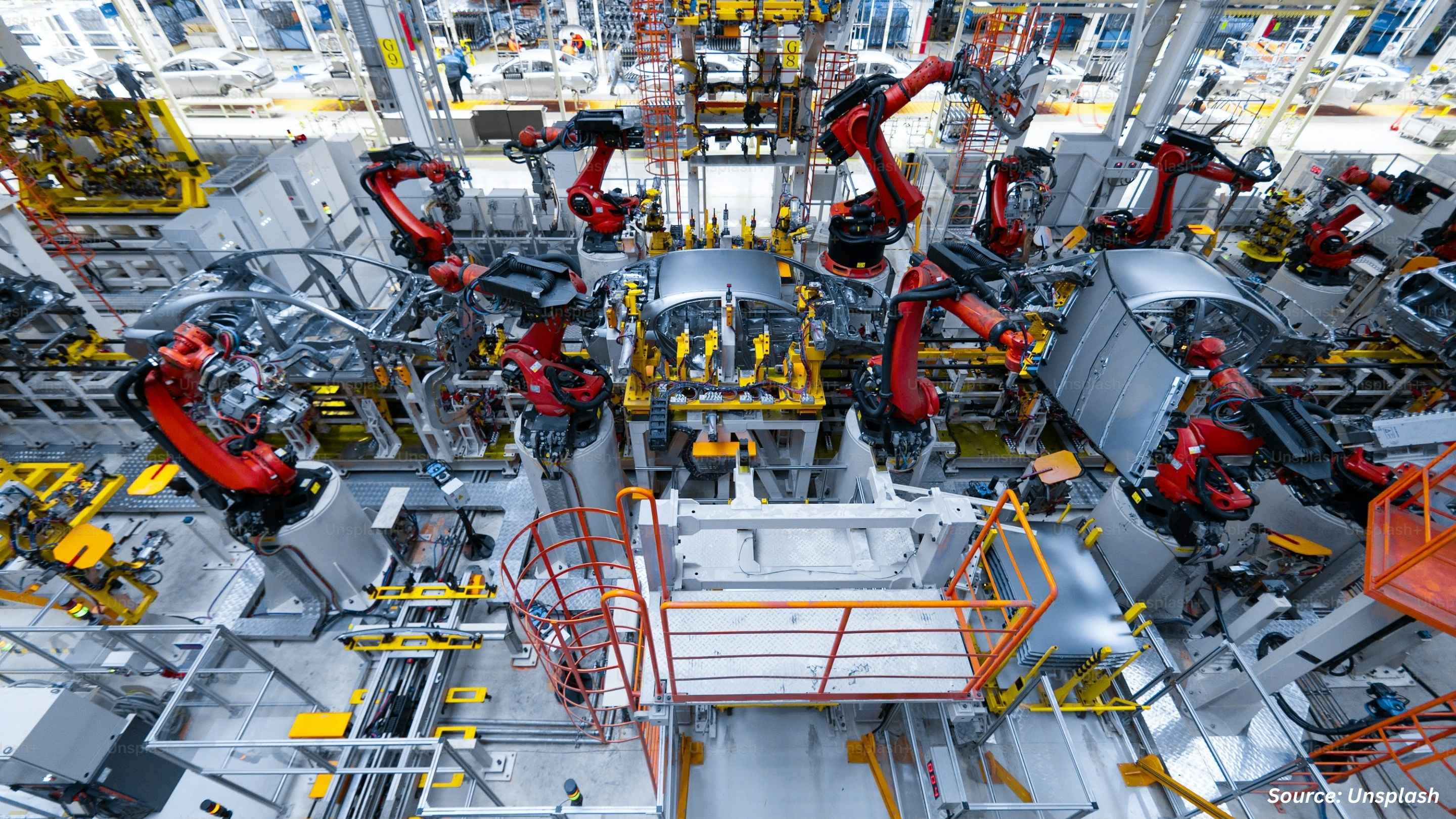
Smart Water Meter Market by Technology (Automated Meter Reading (AMR) and Advanced Metering Infrastructure (AMI)), by Connectivity (Cellular, Fixed Network, Radio Frequency (RF), and Power Line Communication (PLC)), by Meter Installation (Indoor and Outdoor), by Flow Measurement (Positive Displacement, Velocity-based, Compound/Multi-Jet, and Turbine) and Others – Global Opportunity Analysis and Industry Forecast 2023-2030
Market Definition
The Smart Water Meter Market size was valued at 3.56 billion in 2022 and is predicted to reach 9.05 billion by 2030 with a CAGR of 14.2% from 2023-2030. A smart water meter is an internet-connected device that measures, monitors, and records water usage and sends the data to a central monitoring system. Smart water meters provide accurate information on water consumption, detect leaks, and alert customers to high usage, helping to reduce water waste and conserve resources. Additionally, they can track water usage in real time and send alerts to customers when they reach specified limit. Smart water meters are also used to detect and alert authorities about potential contamination such as the presence of chemicals, bacteria, and parasites in water.
Market Dynamics and Trends
The demand for smart water meter is increasing due to the rising government support and growing initiatives to promote the sustainable use of water in developed and developing countries. For instance, the U.S. Environmental Protection Agency (EPA) approved nearly USD 169 million in Bipartisan Infrastructure Law funding to New Jersey for water infrastructure improvements in 2022. This initiative enables to support communities to access clean, safe & reliable drinking water, increase resilience, collect & treat wastewater to protect public health, clean up pollution, and safeguard vital waterways.
Furthermore, the growing adoption of smart water meters to raise awareness and combat water pollution due to the rising prevalence of waterborne diseases like cholera, diarrhea, dysentery, hepatitis A, typhoid, and polio, is further boosting the market growth. As per 2021 World Health Organization’s report, around 2 billion people throughout the world consume water contaminated with faeces. The biggest threat to the safety of drinking water is microbial contamination brought on by faeces pollution.
However, smart water meters have higher upfront costs compared to traditional water meters, making them less affordable for some consumers and utilities, which is restraining the market growth. On the contrary, the introduction of IoT smart water meters along with new features in smart water meters such as remote monitoring, automated data collection, and advanced leak detection is expected to create ample growth opportunities for the smart water meter market in the future. For instance, TEKTELIC offer LoRaWAN smart water meters that come with an IoT platform suite. The smart water meters allow users to keep track of the amount and time of water they use daily.
Market Segmentation and Scope of Study
The global smart water meter market is segmented on the basis of technology, connectivity, meter installation, flow measurement, application, end-user, and region. On the basis of technology, the market is divided into, automated meter reading (AMR) and advanced metering infrastructure (AMI). Based on connectivity, the market is classified into cellular, fixed network, radio frequency (RF), and power line communication (PLC). Based on meter installation the market is categorized into indoor and outdoor. Based on flow measurement the market is divided into positive displacement, velocity-based, compound/multi-jet, and turbine. On the basis of application, the market is divided into, water supply management, leak detection and prevention, water conservation, and billing and revenue management. Based on end user residential, commercial, industrial, and municipal. Geographical breakdown and analysis of each of the aforesaid classifications include regions comprising of North America, Europe, Asia-Pacific, and RoW.
Geographical Analysis
North America dominates the global smart water meter market share and is potently expected to remain dominant in the market throughout the forecast period. This is attributed to the growing government initiative and investment to promote the use of smart water meters owing to the environmental and economic benefits. For instance, in December 2022, the U.S. Environmental Protection Agency (EPA) approved USD 25.7 million in grant funding for organizations to provide technical assistance and training to support small drinking water and wastewater systems that are often located in rural communities. EPA’s funding facilitates to ensure that drinking water in these communities is safe and that wastewater is treated before it is responsibly returned to the environment.
Moreover, the presence of major market players such as Itron Inc, Badger Meter Inc, Aclara Technologies LLC and others along with their strategies including product launches and collaborations are further boosting the growth of the market. For instance, in June 2021, Itron Inc. collaborated with German IoT solutions firm Digimondo to integrate Itron’s Cyble 5 communications module into digimondo’s IoT software, giving utilities in the region a flexible, independent way to connect, monitor and manage their water distribution network via LoRaWAN.
In addition, in August 2020, Badger Meter launched NetAMP-enabled smart water meters, providing advanced data analytics and remote monitoring capabilities for water utilities. This innovation is expected to enhance efficiency, reduce water loss, and improve overall management of water resources in the smart water meter market. This provides users with a fixed, subscription-based Metering as a Service (MaaS) program to get all their Badger Meter equipment, software, meters, and services to upgrade antiquated infrastructures.
On the other hand, Asia Pacific shows a substantial growth in the global smart water meter market owing to various government initiatives in the smart water management projects in the region. For instance, in August 2022, Union Minister of India announced financial support of USD 0.3 million to M/s Kritsnam Technologies, to develop smart water management technologies. This showcases the region's commitment to advancing water management and driving the adoption of smart water meters in the market. Moreover, with the rising population in countries such as India and China, there is an increasing need to ensure water management, thus it is further fuelling the growth of the smart water meter market in the region.
Competitive Landscape
The smart water meter market includes several market players such as Aclara Technologies LLC., Arad Group, Badger Meter, Inc., BERMAD CS Ltd, Diehl Stiftung & Co. KG, Electronet Equipments Private Limited, Inzalo Utility Systems, Itron Inc., Kamstrup A/S, and Landis+Gyr. These market players are adopting various strategies such as product launches and collaboration to maintain their dominance in the global smart water meter market.
For instance, in May 2022, Badger Meter, Inc. launched its ModMAG M2000 Electromagnetic flow meter with the BACnet MS/TP communication protocol. This ModMAG M2000 Electromagnetic flow meter provides dependable, rugged and cost-effective flow measurement for a wide range of applications, including hot/chilled water systems, data centers and other mission-critical HVAC installations.
Moreover, in December 2021, Diehl Metering collaborated with the Maltese Utility Water Services Corporation (WSC) to reduce non-revenue water and overcome the challenges of low flow rates and high levels of limescale. For WSC, this leads to lower expenses, reduced time, and increased network sustainability. This collaboration aims to improve water management and address water loss issues, contributing to the advancement of the smart water meter market.
Moreover, in June 2021, Itron collaborated with United Utilities, the United Kingdom's largest listed water company. This collaboration aimed to implement Temetra, Itron’s next-generation cloud-based meter management solution in energy and water management as well as to improve operations.
Key Benefits
-
The report provides quantitative analysis and estimations of the smart water meter market from 2023 to 2030, which assists in identifying the prevailing market opportunities.
-
The study comprises a deep-dive analysis of the smart water meter market including the current and future trends to depict prevalent investment pockets in the market.
-
Information related to key drivers, restraints, and opportunities and their impact on the smart water meter market is provided in the report.
-
Competitive analysis of the players, along with their market share is provided in the report.
-
SWOT analysis and Porters Five Forces model is elaborated in the study.
-
Value chain analysis in the market study provides a clear picture of roles of stakeholders.
Key Market Segments
By Technology
-
Automated Meter Reading (AMR)
-
Advanced Metering Infrastructure (AMI)
By Connectivity
-
Cellular - Fixed Network
-
Radio Frequency (RF)
-
Power Line Communication (PLC)
By Deployment Type
-
Indoor
-
Outdoor
By Flow Measurement
-
Positive Displacement
-
Velocity-based
-
Compound/Multi-Jet
-
Turbine
By Application
-
Water Supply Management
-
Leak Detection and Prevention
-
Water Conservation
-
Billing & Revenue Management
By End Users
-
Residential
-
Commercial
-
Industrial
-
Municipal
By Region
-
North America
-
U.S.
-
Canada
-
Mexico
-
-
Europe
-
UK
-
Germany
-
France
-
Italy
-
Spain
-
Denmark
-
Netherlands
-
Finland
-
Sweden
-
Norway
-
Russia
-
Rest of Europe
-
-
Asia Pacific
-
China
-
Japan
-
India
-
South Korea
-
Australia
-
Indonesia
-
Singapore
-
Taiwan
-
Thailand
-
Rest of Asia Pacific
-
-
RoW
-
Latin America
-
Middle East
-
Africa
-
Key Players:
-
Aclara Technologies LLC.
-
Arad Group
-
Badger Meter Inc.
-
BERMAD CS Ltd
-
Diehl Stiftung & Co. KG
-
Electronet Equipments Private Limited
-
Inzalo Utility Systems
-
Itron Inc.
-
Kamstrup A/S
-
Landis+Gyr




















 Speak to Our Analyst
Speak to Our Analyst

























